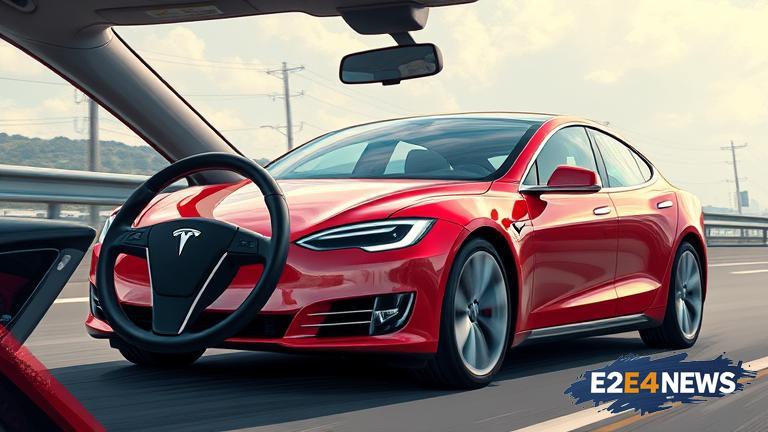In a shocking turn of events, Tesla, the electric vehicle manufacturer, has been ordered to pay $243 million in damages after losing a lawsuit related to its Autopilot feature. The lawsuit, which was filed by a group of investors, alleged that Tesla’s Autopilot technology was defective and had caused a number of accidents. Despite being offered a $60 million settlement, Tesla rejected the offer, choosing instead to take the case to trial. The jury ultimately ruled in favor of the plaintiffs, awarding them $243 million in damages. This verdict is a significant blow to Tesla, which has been facing increased scrutiny over its Autopilot technology. The company has been accused of overstating the capabilities of its autonomous driving system, which has been linked to a number of accidents and fatalities. Tesla has maintained that its Autopilot feature is safe and that the accidents were caused by human error. However, the jury’s verdict suggests that the company may have been negligent in its development and testing of the technology. The lawsuit is just one of many that Tesla is facing over its Autopilot feature. The company is also being investigated by regulatory agencies, including the National Highway Traffic Safety Administration (NHTSA). The NHTSA has been looking into a number of accidents involving Tesla vehicles equipped with Autopilot, including a fatal crash in Florida. Tesla has also been sued by a number of individuals who claim that the company’s Autopilot feature caused them to be involved in accidents. The company’s CEO, Elon Musk, has been a vocal defender of the Autopilot technology, stating that it is safe and that the accidents are rare. However, the jury’s verdict in this case suggests that Musk’s claims may be overstated. The verdict is also likely to have significant implications for the development of autonomous driving technology. Many companies, including Google and General Motors, are working on developing their own autonomous driving systems. However, the Tesla verdict may give them pause, highlighting the potential risks and liabilities associated with the technology. In addition to the financial implications, the verdict may also damage Tesla’s reputation and erode consumer trust in the company’s products. Tesla has been a pioneer in the electric vehicle market, but the Autopilot lawsuit may tarnish its image and make it more difficult for the company to attract customers. The company will likely appeal the verdict, but the outcome is uncertain. If the verdict is upheld, Tesla may be forced to pay out significant damages, which could have a major impact on its bottom line. The case is also likely to have implications for the broader tech industry, highlighting the need for companies to prioritize safety and transparency in the development of new technologies. As the use of autonomous driving technology becomes more widespread, companies will need to be careful to ensure that their systems are safe and reliable. The Tesla verdict is a wake-up call for the industry, highlighting the potential risks and liabilities associated with this technology. In conclusion, the Tesla Autopilot lawsuit is a significant development that has major implications for the company and the broader tech industry. The verdict highlights the need for companies to prioritize safety and transparency in the development of new technologies, and it may have a major impact on the development of autonomous driving technology in the future.
